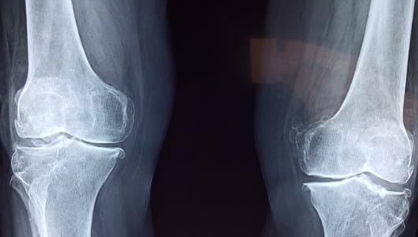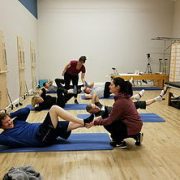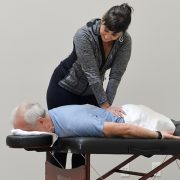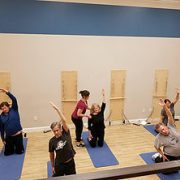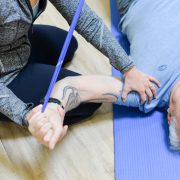Three Science-backed Reasons not to Rely on Imaging for Orthopedic Surgery
Approximately 7 million people undergo an orthopedic surgery each year in the United States. Topping this list are elective procedures (meaning they are not life threatening or urgent) such as ACL reconstruction, total hip and knee replacements, arthroscopic surgery (meniscus repairs, shoulder decompression, etc), and spinal fusions.
Now, what if I told you that of the top 10 elective orthopedic surgeries performed, only one (carpal tunnel syndrome) has real evidence to support that surgery will have a better outcome than conservative care. A recent study published by scientists in the UK hospital system and National Health service reviewed thousands of published studies in an effort to find out if orthopedic surgery was truly better than conservative care or placebo procedures. They found that sadly, thousands of patients are undergoing invasive procedures every year with known associated risks and complications. All while there was an equal or better alternative.
One of the biggest reasons this happens is because people rely on imaging (X-rays, MRI’s, CT scans) to determine whether or not they need surgery. Don’t get me wrong, this incredible technology has revolutionized the field of medicine and orthopedics. The problems occur when we fail to look at the full picture (no pun intended) and rely on images alone to make important decisions about our musculoskeletal health.
Here are three science-backed reasons not to rely on imaging alone when considering orthopedic surgery:
1. Imaging does not always correlate with symptoms
One of the most fundamental reasons why imaging alone should not dictate your decision to get orthopedic surgery is the well-documented lack of correlation between image findings and actual symptoms.
Studies have shown that 20-25% of all people will show a bulging disc in their spine on MRI. This happens even when they don’t have any back pain. At least 50% of adults over the age of 50 will show torn meniscus or cartilage in their knees and feel completely fine. In 2013, The New England Journal of Medicine published a study that found one-third of participants with no knee pain had “abnormal” results in their imaging. This was while one-half of the participants who actually experienced knee pain had completely clear scans.
We have to start normalizing what aging actually looks like on a scan. Just because you’ve got a bulging disc, torn cartilage, or even “bone on bone” arthritis – it doesn’t mean you need to rush into the operating room.
2. Risk of Over-diagnosis and Overtreatment
Overdiagnosis refers to the identification of conditions that aren’t actually causing symptoms or harming a patient. The biggest culprits here include spinal stenosis, joint arthritis, and degenerative joint conditions. One notable study from 2017 published in PLUS ONE, a peer-reviewed mega journal, found that at least 20% of arthroscopic knee surgeries were overdiagnosed and subsequently overtreated. How did they now? Because even though their scans showed things like “wear and tear” and torn cartilage, they had no relevant dysfunction or clinical findings. The only thing indicating they needed surgery was the overdiagnosis of normal aging in their knee.
A particularly sad story comes to mind as I write about this. I recall treating a man with spinal stenosis who was told by his doctor he needed steroid injections to calm the inflammation in his back. He had 6 weeks until his injections, and during that time, we were able to decrease his pain by about 80%. Since it’s impossible to reverse or stop spinal stenosis without surgery (because it’s related to wear and tear as you age), I knew that his pain was being caused by other unrelated factors. But following doctor’s orders, he still went through with the injections. Unfortunately, he had a bad reaction to the injections that left him worse off than when he started with me. His over-diagnosis of spinal stenosis led to a cascade of over-treatment and worse pain than when he started.
3. Non-surgical treatments can be equally effective (if not better)
Orthopedic surgery should really only be considered as a last resort. No matter how routine or “non-invasive” the surgery is, there are still risks of infection and complication, and you want to avoid those at all costs. The problem with conservative treatment is that it takes longer to get to the same (or better) result. And let’s face it, we live in a quick fix world and rarely have patience for this, especially when you’ve got a scan that seems to say otherwise.
Study after study shows that arthroscopic knee surgery (in particular) has the same or better results when treated conservatively (physical therapy and exercise). In fact, when you get arthroscopic surgery on your knee, it increases the likelihood you’ll need a total knee replacement. With back surgery, we know that in the first year or two, your pain will be better or gone. But by year 2-3, if your symptoms haven’t crept back in yet, you’ll feel just as good as your peers who forewent surgery. But after year three, your back pain symptoms tend to return, and you’ll often feel worse than your friends who decided to take the conservative approach from the get-go.
The research continues to support that 70-80% of all musculoskeletal pain is mechanical in nature. Mechanical problems have to do with movement dysfunction and lifestyle/postural habits. They don’t show up in a scan, and they are best treated conservatively. When you see something on an image, it’s better to assume it’s irrelevant and that you fall into the 70-80%. This will protect you from being overdiagnosed and help you avoid potentially unnecessary procedures and surgery. Pay attention to your pain, symptoms, and overall function – they tell a much better story than your images.
Are you local to Portsmouth, NH?
Consider seeing one of my Specialists – they’re experts in mechanical pain. In a free Discovery Visit you can tell us everything that’s been going on with you, and determine for yourself if we’re the best people to help you. It’s a no-obligation appointment that will give you all the information you need to make the BEST decision for YOUR health. Whether that’s working with us or not!
CLICK HERE to request a Free Discovery Visit.
Dr. Carrie Jose, Physical Therapist and Pilates expert, owns CJ Physical Therapy & Pilates in Portsmouth and writes for Seacoast Media Group. To get in touch, email her at [email protected].

